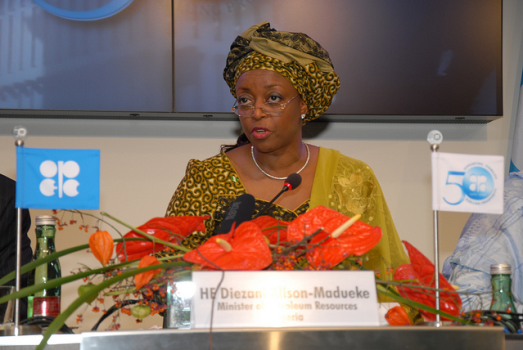The International Corruption Unit (ICU) of the United Kingdom National Crimes Agency has revealed that the investigation into the allegations of bribery and corruption which ultimately led to the arrest of former Petroleum Minister Diezani Allison-Madueke at the weekend actually started in 2013.
This was contained in a statement on its website where it declared that the former petroleum ministers with four others being investigated for the suspected criminal act had been released on conditional bail.
The statement read thus: “On Friday 2nd October, the National Crime Agency’s recently formed International Corruption Unit arrested five people across London as part of an investigation into suspected bribery and money laundering offences.
“All five people arrested were released on conditional police bail later that evening, pending further investigation both in the UK and overseas.
“The investigation commenced in 2013 under the Proceeds of Corruption Unit, and transferred to the NCA earlier this year.”
The ICU did not mention the names of the five suspects, but the British Broadcasting Corporation (BBC) quoted a family member of the former minister as revealing that she was actually arrested on Friday morning.
The date for the investigation of the former minister coincided with the period a former Central Bank of Nigeria (CBN) Governor and now Emir of Kano, Muhammadu Sanusi II, raised issues with unremitted oil proceeds running to the tune of $20 billion. But it could not be confirmed if that had triggered the ICU’s investigation.
The then CBN governor had said the items outstanding and need to be proven by NNPC, included $12 billion out of domestic crude sales yet to be remitted; $6 billion shipped on behalf of NNPC; $2 billion ‘third-party financing’ as there are no documents explaining or proving this along with other claims around pipeline repairs, maintenance, strategic reserves, etc.
The ICU stated on its website that its functions included investigations into “bribery of foreign public officials by individuals or companies from the UK; and Money laundering by corrupt foreign officials and their associates; trace and recover the proceeds of international corruption; support foreign law enforcement agencies with international anti-corruption investigations; engage with government and business to reduce the UK’s exposure to the proceeds of corruption; and work with business to support increased compliance with the Bribery Act 2010.



Leave a Reply